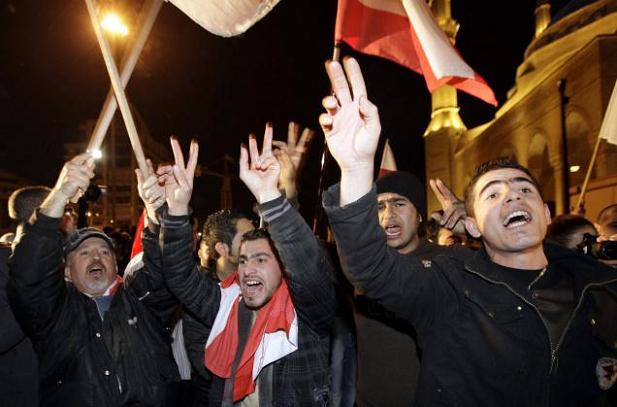Israel: Stay out of Lebanon this time
New in Ceasefire - Posted on Saturday, January 29, 2011 0:00 - 0 Comments

By Nussaibah Younis
The agonising tension that has gripped Lebanon for months skyrocketed in mid-January when the Hezbollah-led opposition pulled out of the cabinet – forcing a collapse of the Lebanese government.
Hezbollah acted after failing to pressure the governing March 14th coalition into distancing itself from the Special Tribunal for Lebanon (STL) – which was set up to investigate the murder of former Prime Minister Rafik Hariri and which was widely expected to indict senior members of Hezbollah.
Israel has been a vocal backer of the STL despite not being a party to any of its investigations, and has already hinted that Hezbollah can expect a replay of the 2006 war should they make any moves against Israel in this new period of instability.
Israel must recognise, however, that it is responsible for the powerful position that Hezbollah has managed to carve for itself in the Lebanese state. If it exploits this most recent political crisis to violently pursue Hezbollah – it will only strengthen support for the party.
Founded in 1985 in response to Israel’s invasion of Lebanon, Hezbollah’s raison d’être was to liberate Lebanese territory from an often brutal Israeli occupation. Its resistance against Israel afforded Hezbollah wide cross-communal appeal in a country where sectarian politics are endemic. It provided a justification for Hezbollah retaining its considerable arsenal when all other Lebanese militias were disarmed following the end of civil war in 1990.
Every time Israel attacks Lebanon, with the extreme and disproportionately violent methods that it is prone to using, the result is a massive resurgence of popular support for an armed Hezbollah.
In 2006, for instance, when Israel invaded Lebanon killing an estimated 1,300 civilians in 34 days – Hezbollah actually gained political ground. The grotesque violence inflicted by the Israeli state on Lebanese civilians contrasted with Hezbollah’s surprisingly effective retaliation, winning Hezbollah respect and support in Lebanon and internationally, and above all reviving their reputation as a party of legitimate popular resistance.
If Israel truly wants to undermine Hezbollah’s power inside Lebanon – it should not give them anything to ‘resist’. It is only when it can be demonstrated that Israel no longer poses a threat to Lebanon that Hezbollah will begin to seriously lose support.
Many Lebanese deeply resent Hezbollah for holding the Lebanese government to ransom as it did last month and as it did in May 2008. Some complain that Hezbollah acts as a law unto itself and that it has emasculated Lebanon’s judiciary and security forces. Others fear that by using arms to bolster its position in Lebanese politics, Hezbollah will prompt other religious communities to re-arm on a slippery slope towards civil war.
It is up to the Lebanese to hold Hezbollah to account for its behaviour in domestic politics, and it is their right alone to forcibly disarm Hezbollah. The international community can help by ending the Israeli threat to Lebanon. We cannot ignore that Hezbollah has built up huge popular support largely on the basis of its opposition to deeply troubling Israeli policies and actions.
It is only by committing to protecting Lebanon against Israeli interventionism that the international community can give Lebanese politicians the chance to resist Hezbollah.
 Nussaibah Younis is a doctoral candidate in international relations, a freelance researcher and a journalist based in Beirut and London.
Nussaibah Younis is a doctoral candidate in international relations, a freelance researcher and a journalist based in Beirut and London.


Leave a Reply